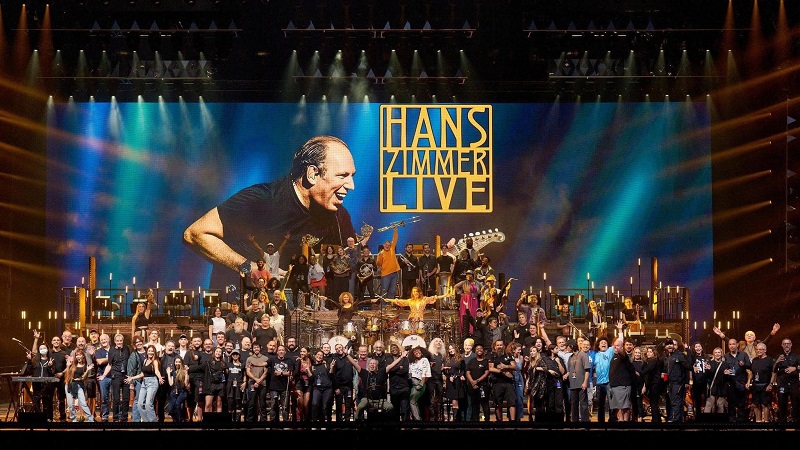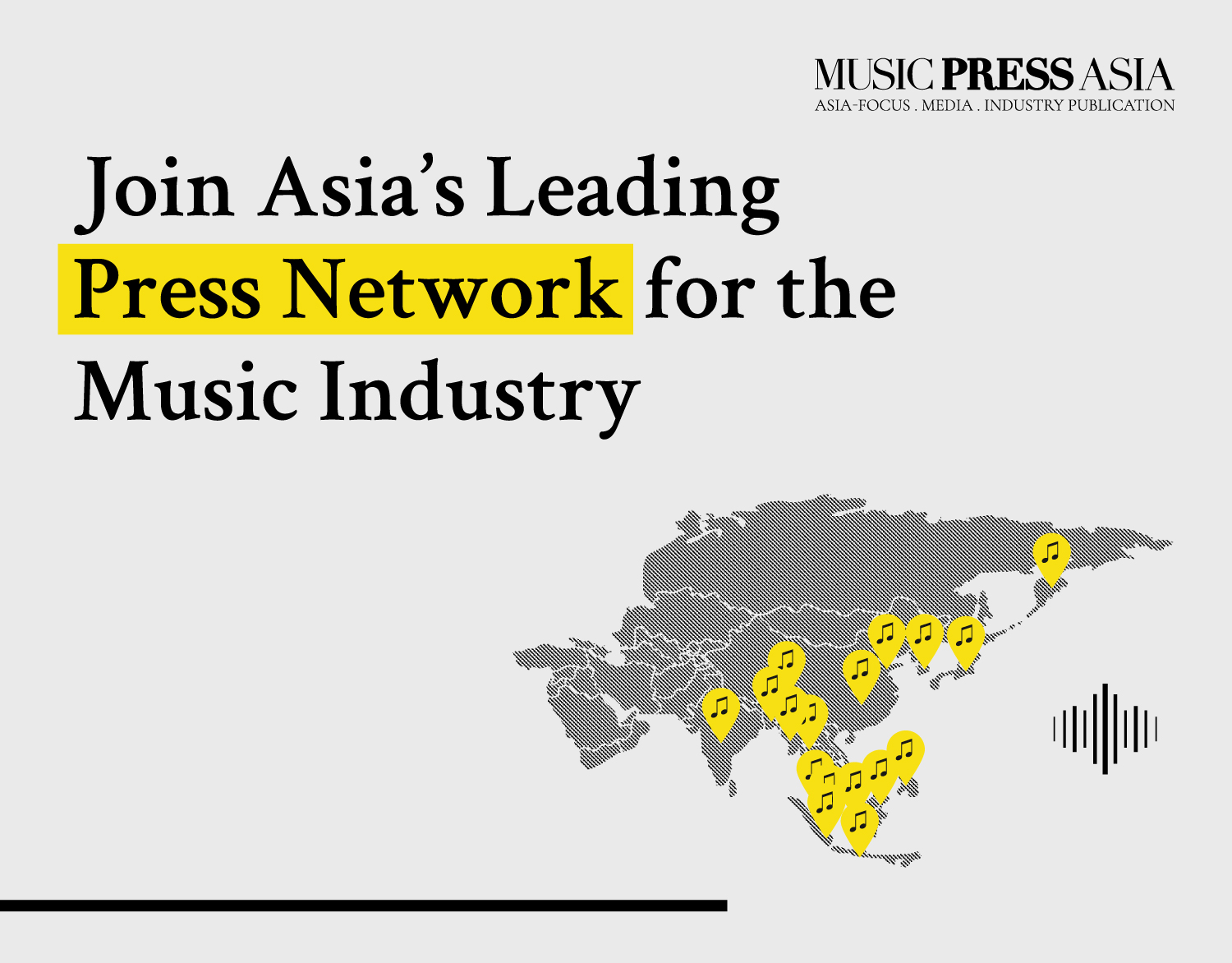Electronic Music Is Changing The DJ Culture in Asia
The Surplus of Fame: DJs are going through a whirlwind popularity. The electronic music scene is going through a rapid, economic face lift and nourishing a young cultural identity never seen before in Asia history.
The Surplus of Fame: DJs are going through a whirlwind popularity. The electronic music scene is going through a rapid, economic face lift and nourishing a young cultural identity never seen before in Asia history.
![[Goldfish & Blink. Image courtesy of Ultra Music and Rukes]](https://www.musicpressasia.com/wp-content/uploads/2018/09/cropped-800x450.png)
[Goldfish & Blink. Image courtesy of Ultra Music and Rukes]
For the last decade, DJs have been calling the shots. The mainstream music scene in Asia sees DJs taken under the wings of mother goose fertility – playing in some of Asia’s most exciting clubs and festivals. Surprisingly, Asian DJs are even venturing out of the continent headlining top festivals and clubs. Sensing a deep thirst to go global, promoters have begun to place them to perform alongside pioneering old vines of the scene. And some of them has flourished and proving a good ‘snatch’.
DJ Agencies and prominent electronic music labels began a frenzy of signing DJs in the West way before the demand jar for Asian DJs began to spill over.
Prime time acts are no longer reserved for the few. Some hungry Asian DJs, yearning for what has been achieved by DJs in the West today, go through series of identity disentanglement in a quest for a unique voice that can truly represent the idiosyncratic personal experience and background. The result was remarkable. A new breed of DJs began to test boundaries by magnifying and compounding the existing rich sounds found only in the cultures and traditions in Asia.
Established DJs, especially in Asia, have paved a route not like others — an unconventional discovery powered through the spirit of entrepreneurship and passion for that beat. As anarchistic as it may seem, acceptance for such a profession is just starting to seep through a cultural blockage associated with drugs and a night life.
Why is demand for DJs still soaring in Asia? This is a difficult question to answer. However, there’re a few reasons happily crowding the podium: one for sure, electronic music consumption is maturing. As part of the largest digital revolution that has taken place within Asia and the music industry, China has finally stepped in via a government-supported campaign to abolish pirated music sites. For many corporate executives in the industry, it can only mean one thing – it’s a brand new market, we want to have a piece of it!
The music revolution has begun! Policies were set to turn the largest music consumers in Asia into paying for music. Pirated sites in China were asked to come forward and present its technology in the name of national progress, and discuss partnering opportunities. Many music companies at the time have already been incorporated under the radar and the announcement was an effective publicity stunt aimed to stun and create an immediate frenzy of a more ‘open’ China. It sent out a huge ripple effect still being felt not only in China, but surrounding the South Asia region today. It’s message reverberated promising opportunities and ‘healthy’ economic value made of mass.
Fast forward to the present day, the future for a more sustainable music ecosystem built over the decade is looking bright. Giant tech and gaming companies like NetEase and Tencent divested its conglomerate interest to create digital music service platforms for its 1.3 billion population to satiate its thirst for creativity. Driven by the mass volume of users, its efforts to monetize have not only created a growing consumer base of music lovers, but very affordable music downloads and subscriptions even the Swedish music company Spotify find impossible to beat.
Around the same time, electronic music sees a new re-emergence surrounding the region, as well as growing interest from the people of China. Just about a decade ago, electronic music was still going through a hard time, never really bearing its skin in the mainstream department. Its underground identity has only attracted a small movement of die-hard fans – regular club goers, mostly teens – stereotyped alongside overrated and uncultured music, drug abuse and alcoholism.
Perhaps it was China that really gave hope to the rising interest in the region – a chance for electronic music to show its other side not many have seen. Drastic change can only mean drastic results – within a short period of a few years, music festivals began a renewed interest for electronic music. By 2006, Midi Festival hosted in four cities in China saw 18 foreign bands totaling over 70,000 festival goers. Larger cities like Beijing and Shanghai saw increasing interest from the youth for electronic music as their medium of expression.
Demand for electronic music, magnified by world renown celebrity DJs visiting and performing in China, spurred regional interest and has driven up some of the largest ticket sales to electronic music festival in the region to date, beating K-pop’s fans and audience. Today, electronic music artists are some of the largest group of artists within a genre to benefit from continuous booking to perform at festivals throughout Asia.
Promoters from some of the longest-standing music festivals in Asia, celebrating almost two decades of music-festival-organising including Djakarta Warehouse Project, ZoukOut, Pentaport and Fuji Rock, boast impressive headlines that would make a K-Pop concert seem dainty. And as insignificant as it may sound, DJs could be some of the easiest artists to book. A simple artist rider pose less risk for promoters when it involves an artists out of town or country. Costs to organising a festival or concert are as arbitrary as ticket sales and depending on guts many promoters have suffered huge loss due to massive pre-concert expenses to cover artists’ fee, logistics, licensing and paying suppliers. However, this risk is decreasing thanks to the growing use of reliable big data technology.
Free and live streaming extended beyond the boundary of age, experience and creativity have also led to an open-sourced worldwide career opportunity – a trend unknown to the previous generation. YouTube, Musical.ly and many other live streaming applications give budding artists a go at being their own celebrity allowing instant broadcast of practically anything you could record and publish on these public platforms. Coupled with the ubiquitous influence of social media, young and increasingly popular DJs and artists have succumbed to what most likely described as progressive visual storytellers and influencers. On top of writing, recording and mixing music, constantly on the road and tours to beating jet lag and tight performing schedules, it would be an understatement to say that DJs have the best dream job in the world.
Earlier this year, Swedish DJ and producer Avicii, only 28 years old, was reported to have suddenly passed away in Oman – due to a condition associated with excessive drinking. Unfortunately, Avicii’s story stands alongside many similar cases of untreated social and physical ills. Dismissing matters concerning livelihood and health to focus on how to impress others is clearly a perverted illusion, which would more likely lead to addictions and illnesses.
In a recent interview with Morgan Then, a member of the Perth-based duo Slumberjack commented: “ I think a lot of people tend to romanticize/glamourize the idea of being a touring musician and think all is well; partnered with the constant use of hashtags on social media such as #blessed #livingmybestlife – people might just miss the fact that artists are actually just your average person with similar problems and issues in life as anyone else.”
On career opportunities: DJs spend a lot more time on the road than it has ever been in the past. This new lifestyle, plus an increase in flight routes in the region, provides an wider exchange for music in the region. Asia-Pacific contains almost half of the world population speaking diverse languages and dialects to cultural celebrations that do not exist anywhere in the world. DJs find themselves performing not only within confined club settings, but also outdoor music festivals and other lifestyle events sprouting and disappearing at a tremendous speed.
Clubs find a more suited crowd when evenings are specially curated according to genres. Playlists would vary depending on genres selected for the night – R&B top as most popular genres for most clubs in Asia, whereas House and Trance are more likely curated as the alternative. Established club like Zouk, Singapore relish in its pioneering status as the longest-running night club in Singapore. DJs who’d made their appearances at Zouk take on more gigs from other established clubs in the region. Kyo KL at Mandarin Hotel boasts a diverse DJ list comprising local acts to international DJs as far as Berlin. Holiday destinations across the tropical islands in Bali Indonesia sees over 200 gigs taking place every month featuring DJs from the world over.
Festivals as a choice for music and lifestyle entertainment have boomed tremendously over the last decade with boutique programs curated specially to attract not only music fans but young families and holiday-goers looking for alternative forms of entertainment in the region. The one-stage set up are no longer an economical norm at music festivals in Asia, boutique stages embody a cozy atmosphere meant for alternative programming that runs simultaneously at various grounds within the festival area. That could only mean one thing: more artists could be involved while providing a larger festival program. Lifestyle festivals have become destinations to strike that one to-do thing off the bucket list. Asia’s festivals have become THE place for fashion bloggers, organic food enthusiasts, cocktail sunbathers, wellness students and art lovers to spend the weekend away, within a confined area, completely entertained.
Earlier this year, Wired Music Week‘s first edition at Cyberjaya, Malaysia hosted a conference comprised of a contingent from the electronic music scene including AEI Group, 2Dutch Records and more with the objective to create discussions and connect DJs directly with promoters, booking and artists agencies, and labels.
The ecosystem benefiting an artists career in electronic music and businesses surrounding the industry has never been more complete. Digital services, promoters and DJs are in the best time of their lives and Asia provides that sweet spot to go mainstream.













